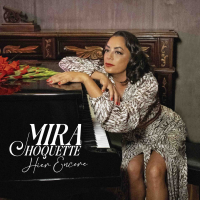Home » Jazz Articles » Interview » Mike LeDonne: Where There¡¯s Smoke
Mike LeDonne: Where There¡¯s Smoke

The moment you want to get to is where all the influences are just kind of flowing, and then it¡¯s you. That¡¯s the thing.

Oscar Peterson
piano1925 - 2007
LeDonne is especially happy with his long tenure at the club. "It's an extraordinary thing to have a steady gig like that and then to see people still coming out in droves to listen. And now the word is out all over the world—people know Tuesday night is organ night at Smoke. They come to New York just to see it. They come right off the plane from Europe and go right to Smoke." Not only does the club draw crowds of fans, but great elder statesmen of jazz such as

Lou Donaldson
saxophone1926 - 2024

Frank Wess
saxophone, tenor1922 - 2013

George Coleman
saxophone, tenorb.1935
Born in Bridgeport, Connecticut in 1956, LeDonne grew up in his parents' music shop; his father, Mickey, was a jazz guitarist who also sang in the style of

Nat King Cole
piano and vocals1919 - 1965
His experience spans an impressively wide range of jazz styles from traditional swing to modern post-bop. Very early in his career, he was a member of the " data-original-title="" title="">Widespread Depression Orchestra, playing classic charts of the swing era, and before long, he was playing with

Benny Goodman
clarinet1909 - 1986

Art Farmer
flugelhorn1928 - 1999

Clifford Jordan
saxophone, tenor1931 - 1993

Dizzy Gillespie
trumpet1917 - 1993

Stanley Turrentine
saxophone, tenor1934 - 2000

Sonny Rollins
saxophoneb.1930
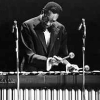
Milt Jackson
vibraphone1923 - 1999

Benny Golson
saxophone, tenor1929 - 2024

Ron Carter
bassb.1937

Joshua Redman
saxophoneb.1969

Lewis Nash
drumsb.1958

Eric Alexander
saxophone, tenorb.1968

Peter Bernstein
guitarb.1967

Joe Farnsworth
drumsb.1968
All About Jazz: Your 12-year organ gig at Smoke must set some kind of record.
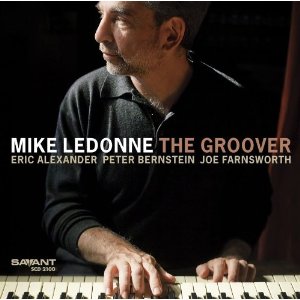
Mike LeDonne: Smoke is my home in New York. I love Smoke. That's where you hear guys still going for it and playing real jazz music all the time. They allow swing. They allow the blues. They love all of it there, and you can't find that kind of variety in a lot of places these days. Everybody's trying to move the music forward, and so we're getting away from what are the true, deep roots of the music—the blues and the African-American tradition—which, to me, is a sin. I always say it's good to go forward, but we need to go up, too. You go forward, and you can fall off a cliff. You need to bring the music up and stay true to its roots. That is huge in my mind, in my heart and in what I play. I'm going for that feeling at the heart of the music, because I know that feeling from playing with the guys I've played with and from listening to the music all my life. That's what got me into it—the feeling. I didn't know what they were doing. I didn't know what

Wynton Kelly
piano1931 - 1971
Smoke is a place where I've been able to develop my organ style for 12 years now. You know, I've been playing organ since I was 14—10, really, but I got a Hammond B3 when I was 14. My father owned a music store. So I've been playing it all this time, but I always kept it in the background. I really didn't want to change my vibe with it by getting out and being all serious with it. I didn't want to get in the arena and be in competition with the other guys out there, but when I played at Smoke, they just threw me in the ring. It was supposed to be a four-week engagement, and it turned into 12 years.
And I don't just do the Tuesday-night organ gig—I do weekends there, too, sometimes, and get involved in the other music they present there. It's all real jazz, and it's the kind of jazz where people walk in and say, "I didn't know this was jazz." They're surprised because it feels so good. They might have been to one of the other big-name clubs around town and felt like they were in church on Sunday. At Smoke, you can really have fun. And you can talk, too. Sometimes it might be a little too much for my taste, but I don't want to take that away. I like people to enjoy themselves. That's what jazz was. I'm sure when

Charlie Parker
saxophone, alto1920 - 1955
AAJ: Can you tell us a little bit about the guys in the band: Eric Alexander, Peter Bernstein and Joe Farnsworth?
ML: Peter, Joe and Eric and I were playing together long before Smoke. They're all about 10 years younger than me. I met them when I was playing around already, and they were just kids going to school, really. Then we started playing together—it must be 20 years ago. And we're great pals. We've been through all this stuff together, been all over the world together. We've had our kids during the Smoke gig. We've grown old together. It's like an old married couple, kind of. We fight, and we make up and all that kind of stuff. But Peter is my favorite guitarist, and Joe's my favorite drummer, and Eric is my favorite saxophonist. And that's not to put anyone else down. That's just me. So, it was very lucky for me to have my favorite guys in my group and with me all the time.
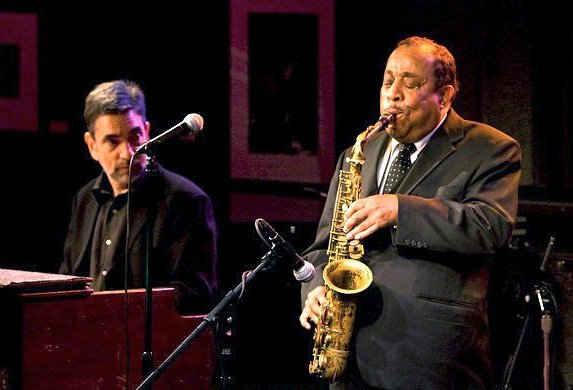
AAJ: Does Eric Alexander's experience with

Charles Earland
organ, Hammond B31941 - 1999
ML: Of course, because not only did that make him know what to do, but it's so nice to have someone who loves that kind of music. You have to have that. I've had a lot of people ask me to do the gig—and they're great players—but I can tell when they don't really love this kind of stuff. It's not really their favorite thing, but they want a gig, and they want to make the money, and that's cool, too. But it's so much better when somebody's really in love with this kind of thing and just knows what to do. Eric can do anything, but what I love about him is not only is he modern—with his own conception and his own harmonic devices and all—but he also has a lot of

Stanley Turrentine
saxophone, tenor1934 - 2000

Gene Ammons
saxophone, tenor1925 - 1974

Dexter Gordon
saxophone, tenor1923 - 1990

George Coleman
saxophone, tenorb.1935

Lou Donaldson
saxophone1926 - 2024

Frank Wess
saxophone, tenor1922 - 2013
AAJ: Where else have you been playing lately outside of New York?
ML: Well, I've done the Detroit Jazz Festival a couple of years in a row, the Chicago Jazz Festival, some other festivals in the Midwest—a lot of the jazz festivals all around. It's all part of what I do—and I've been doing it for 35 years, now. I go to Europe regularly—Italy and Germany. I have a trip to Germany in September, just going to go there by myself this time. That's a new thing; usually I bring my own group, but there are some musicians based there who want me to come and play with them, so I'll go try it.
AAJ: You have some recent recordings out—Keep the Faith (Savant, 2011), and there's a great new record you're on with Eric Alexander and Vincent Herring as co-leaders, Friendly Fire (High Note, 2012). On Keep the Faith, you have a number of original compositions.
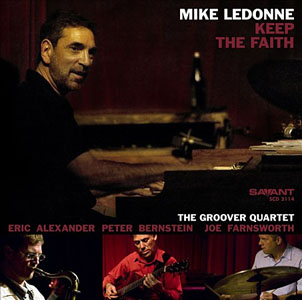
ML: Well, it's all stuff that I come up with at Smoke. I have that luxury of trying things out there. I write every day. I love writing as much I do playing, really. So I write stuff every day, and a lot of it just goes in the delete box. But I'll get something that I think is pretty cool, and I'll bring it in and try it, and then it still may go in the delete box if people don't like it. The tunes on the record are tried and true, what I call "hits."
The tune "Keep the Faith" itself is by Charlie Earland. I wrote a tune for

Big John Patton
organ, Hammond B31935 - 2002

Harold Mabern
piano1936 - 2019
"Burner's Idea" is for Charlie Earland. It's a little lick that I heard him play once, and I just made a tune out of it. And that's what I do. I just try and come up with something that fits the group and is not too hard, because we never rehearse. We have never rehearsed. We play every week, but still, you bring in something to read on the gig and it's a packed house—you can't stop and describe how there's a hit on the and of four here, or you have to watch for a key change there, or whatever. It's got to all just lay out and play itself, be that kind of tune. In a way, it's limiting what I can do, but it's been a good limitation because it's made me think simpler and come up with stuff that actually sounds like songs and stuff that is still interesting and challenging to play.
 AAJ: The Groover is another outstanding recent recording—kind of similar to Keep the Faith.
AAJ: The Groover is another outstanding recent recording—kind of similar to Keep the Faith. ML: I would say Keep the Faith is part two of The Groover. The Groover was such a hit. It was like a number-one hit for months—tons of airplay on jazz radio. And I got lots of gigs off of it; I got festivals, all kinds of people calling me from it. It was really an explosive thing. So I thought, "OK, well, people like it—do it again." And then I did Keep the Faith, and I got nominated as top keyboardist for 2012 by the Jazz Journalists Association, and I won the DownBeat critic's poll as "rising star" on organ. I guess I'm an old star but not a falling star. I'd rather be rising. But, hey, I'll take whatever I can get. It doesn't really mean a whole lot to me, really, because it seems so strange to see Melvin Rhine's name at the bottom of the "rising star" poll, for example. Nonetheless, it's recognition; that's all it is—somebody saying, "We like what you're doing." And that's not bad. I never used to get these kinds of accolades. I've never been the guy in the polls at all. But lately, people are writing articles—DownBeat recently, for one. This is all new ground for me. I've always been the underground guy who everybody likes but the general public doesn't know that well. Not a household name.
Another new album I did is called Up a Step (Cellar Live, 2012), recorded at a club I play in Vancouver, called The Cellar. The gentleman who owns it is a very good tenor saxophonist named
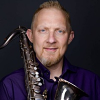
Cory Weeds
saxophone, altob.1973

Jesse Cahill
drumsThe trio record will be with

Joe Farnsworth
drumsb.1968
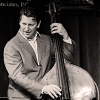
John Webber
bass, acoustic
Ron Carter
bassb.1937
AAJ: Another gig you've done in recent years in New York that not many people know about is playing solo piano in Bryant Park mid-day for a week in the summer. Harold Mabern paid you a visit this year one day, right?
ML: Harold Mabern is awesome. He's my great friend. We talk on the phone all the time, and he's super supportive. Not only is he a monster musician, but he's a beautiful human being. And it's just a joy to be around this guy. He got up and introduced me to the crowd. I finished my set and just waved goodbye. And he stopped me, and he got up and said, "Wait a minute, Mike. I'm going to say, because you're too humble to say it, this is Mike LeDonne!" And he just went off and gave this whole rap about me and told them I played at Smoke and other stuff. That's Harold Mabern, man. He's a beautiful guy. But, see, he can give it up to people because he's so great. When you're great, you can give it up, and say, "Well, you're great. I love your playing." And that's when it really means something.
AAJ: Does playing that gig in Bryant Park give you any ideas about recording a solo piano album?
ML: It does make me think about it. I'd feel a lot better about doing it now than I ever did before. I used to play set arrangements for my solo piano gigs, and then I just felt like it trapped me. I was playing those same tunes the same way. And then I just thought, "To hell with all that." I was just sitting here on that funny little piano in the park, and I was thinking, "Why do all that? Just play!" Also, I think, in my own playing, I've always been trying to open it up. I don't want to get boxed into any one thing. That's called growth, and that's what I want to do for the rest of my life. I push for that. I focus on that. I'm not looking to reinvent the wheel but just to get better and find myself more and feel more comfortable in what I'm doing, more secure and solid. All these things—I feel like it's happening. I can feel it.
 I can feel the difference from when I used to play my solo piano gigs years ago. My favorite guy was
I can feel the difference from when I used to play my solo piano gigs years ago. My favorite guy was 
Hank Jones
piano1918 - 2010

Cedar Walton
piano1934 - 2013

McCoy Tyner
piano1938 - 2020

Phineas Newborn, Jr.
piano1931 - 1989
I get to this point where I'm really into somebody—I was into

Wynton Kelly
piano1931 - 1971

Herbie Hancock
pianob.1940

Bill Evans
piano1929 - 1980
AAJ: But your playing has such a personal sound.
ML: I hope so. I'm glad to hear you say that, because you always wonder. I still listen to everybody, and sometimes I feel like one guy might be overshadowing. The moment you want to get to is where all the influences are just kind of flowing, and then it's you. That's the thing.

Now, let's face it, there hasn't really been an innovator, I don't think, since Herbie and McCoy and a couple of others—not a real innovator where after they're here, everyone tries to sound like them. Maybe it'll happen again, and if it does, it'll be out of some natural set of circumstances. It's not going to be through anyone trying to innovate. What I think you do as a jazz musician is you just learn as much as you can about everybody, and you copy the greats, and then, the way you put it together, that's you.
AAJ: You didn't mention Oscar Peterson.
ML: He was an innovator, because so many guys tried to sound like him—grew out of him, like

Monty Alexander
pianob.1944

Art Tatum
piano1909 - 1956

Earl Hines
piano1903 - 1983

Erroll Garner
piano1921 - 1977

Bud Powell
piano1924 - 1966
But I say there are innovators, and then there are language changers—two different things. A lot of guys innovate certain things. Bill Evans innovated some things, but basically, when you get down to it, he was a bebop pianist. Herbie innovated a lot of things, but to me—maybe not today, but when he was with Miles, at the time he made his huge impact—even though he was expanding the harmony and rhythms of it, he was still playing bebop, basically, playing that language.
 But when McCoy Tyner came up with his thing, and you hear "Passion Dance," and you hear the language—totally different. Nothing like it ever existed before. And that's a language changer. And then, after that, Herbie was influenced by him,
But when McCoy Tyner came up with his thing, and you hear "Passion Dance," and you hear the language—totally different. Nothing like it ever existed before. And that's a language changer. And then, after that, Herbie was influenced by him, 
Chick Corea
piano1941 - 2021

Keith Jarrett
pianob.1945
AAJ: Is this something that you strive for at all yourself—to change the language?
ML: Everyone thinks about it. But I don't really strive for it. If it happened someday, I would be floored. In fact, though, I don't think you even know it when you're doing it. I knew a guy who played with Bird. He used to play with me on 54th Street when I played at Jimmy Ryan's. His name was Ted Sturgis, a bassist. He played with Charlie Parker in his very first group on 52nd Street with Dizzy—with Bird and Diz. He's the guy that Bird wrote the tune "Mohawk" for. Ted is Mohawk because he had Indian blood in him. He used to tell me how, when Bird and Diz and he were playing, they'd read all this news in the music publications, like, "These guys are changing everything. The bebop language is all new. It's never going to be the same." Bird and Diz were, like, "What? Who are they? Because we're just playing." They didn't try to do anything new. They just played, and it happened, and they were just playing their stuff. And then, suddenly, it was like everyone was saying, "Oh, my God! The messiah has come!" But they didn't think about it that way at all. Now

John Coltrane
saxophone1926 - 1967
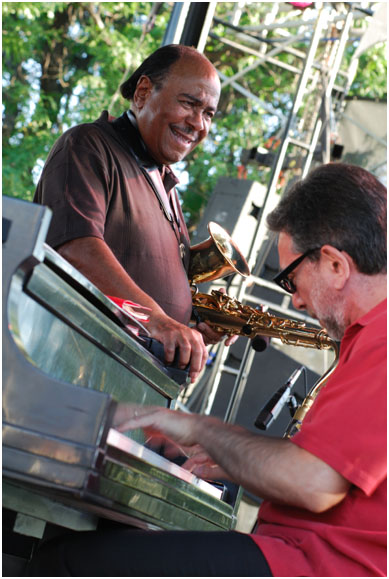 AAJ: Can you tell us a little about your work with Benny Golson, Milt Jackson, and the other masters you played with, coming up?
AAJ: Can you tell us a little about your work with Benny Golson, Milt Jackson, and the other masters you played with, coming up? ML: I had been a sideman for many, many years. I was so lucky in those early years. When I came here to New York in the late '70s, there were so many masters still around, and I got to work with a lot of them. The Art Farmer-Clifford Jordan Quintet, Sonny Rollins, even Benny Goodman, way back, when I was about 25. I worked with a lot of traditional jazz guys like

Ruby Braff
cornet1927 - 2003

Vic Dickenson
tromboneb.1906

Bobby Hutcherson
vibraphone1941 - 2016
So I've done a wide spectrum of playing, and I'm probably one of very few in my age group who's covered such a wide of a spectrum of styles. I knew about all the swing stuff and Benny Goodman from my experience with the Widespread Depression Orchestra. It was a perfect school for all that—I learned all the tunes. I knew how

Teddy Wilson
piano1912 - 1986
When I came here, no one my age had a record deal, except for
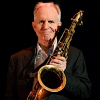
Scott Hamilton
saxophone, tenorb.1954

Warren Vache
cornetb.1951
Back in those days, I'd be going to these gigs with these guys but listening to

Miles Davis
trumpet1926 - 1991

Jimmy Cobb
drums1929 - 2020

Paul Chambers
bass, acoustic1935 - 1969
Fast forward to May, 2012, and Smoke has a Miles Davis tribute, and there I am playing with Jimmy Cobb and not Paul Chambers but John Webber, who sounds very much like him, and Eric Alexander,

Jeremy Pelt
trumpetb.1976
Playing with Milt Jackson was another dream come true, because I used to go see him all the time. He was a genius. Nobody could play vibes like him before or since. And his was my favorite group:

Ray Brown
bass, acoustic1926 - 2002

Billy Higgins
drums1936 - 2001
Good lord, man, those guys were so great. There wouldn't ever be a moment where you were looking at your watch and thinking about what you had to do tomorrow. You were just beaming ear to ear listening to that music, and you couldn't wait for the break to be over, you wanted another and more—give me more! When they played the Village Vanguard, I went every night—not one night, every night. I couldn't resist.
When he called me to play the gig, he didn't really know who I was.

James Williams
piano1951 - 2004

Bob Cranshaw
bass1932 - 2016
 Eventually, Cedar stopped doing it, and James got very busy, so I started subbing more and more, and eventually I wound up on that gig and being musical director—picking all the tunes, writing arrangements. He was doing my tunes! And we became like family. I'd call him up and talk about anything, go hang with him out at his house. He was truly my buddy. We'd go on the road together. He'd bring pies. He was a baker; he used to bake pies—sweet potato pie or pineapple pie, which I never had before, and other kinds, too. We'd be going to Japan, and we'd have three or four pies circulating in business class, giving everybody a piece—stewardesses, too. That's what it was like with Bags. It was just a party. He never said one word to me like, "I don't like the way you're doing this," or "I don't like the way you're doing that." Never. Just do your thing, and do it to the fullest.
Eventually, Cedar stopped doing it, and James got very busy, so I started subbing more and more, and eventually I wound up on that gig and being musical director—picking all the tunes, writing arrangements. He was doing my tunes! And we became like family. I'd call him up and talk about anything, go hang with him out at his house. He was truly my buddy. We'd go on the road together. He'd bring pies. He was a baker; he used to bake pies—sweet potato pie or pineapple pie, which I never had before, and other kinds, too. We'd be going to Japan, and we'd have three or four pies circulating in business class, giving everybody a piece—stewardesses, too. That's what it was like with Bags. It was just a party. He never said one word to me like, "I don't like the way you're doing this," or "I don't like the way you're doing that." Never. Just do your thing, and do it to the fullest. It was the same with Benny Golson. He never said one thing to me. He's the one who really allowed me to expand my voice, because he wanted that. He wanted you to push, to go to the next level. He was so encouraging to me. I have all these letters from him that he's sent me. He'll send me a present in the mail out of nowhere. He wrote a tune for my daughter. It's called "Little Mary," and it's on my Groover record. He sent it to me one day just out of the blue. I got a FedEx. I had no idea what it was. I pulled it out—here's an original Benny Golson composition written for my daughter, and it's great. And I played through it, and I said, "Oh, my God! I've got to record this right away." What an honor, man—the guy who wrote "I Remember Clifford" and "Whisper Not." He wrote "Little Mary," and now it's in his book. And so my daughter has that for the rest of her life. It's like

Duke Ellington
piano1899 - 1974
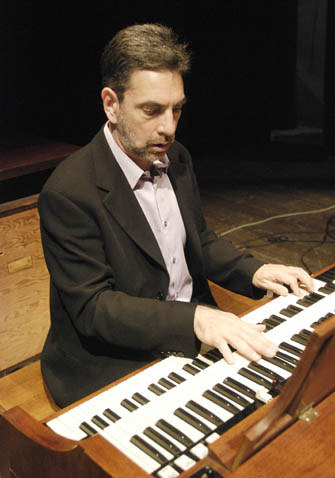 AAJ: Getting back to the organ, in your discography you made a record with
AAJ: Getting back to the organ, in your discography you made a record with 
Michael Hashim
saxophone, sopraninob.1956
ML: It was. It might have been my first organ record. Peter was on that and

Kenny Washington
drumsb.1958

Count Basie
piano1904 - 1984

Joey DeFrancesco
organ, Hammond B31971 - 2022

Larry Goldings
organ, Hammond B3b.1968
The first guy who heard me play organ and really gave me a professional gig was

Percy France
saxophone1928 - 1992

Bill Doggett
organ, Hammond B31916 - 1996

Jimmy Smith
organ, Hammond B31925 - 2005
Joe Dukes
drumsb.1937

Jack McDuff
organ, Hammond B31926 - 2001

Jim Snidero
saxophone, altob.1958
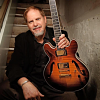
Dave Stryker
guitarb.1957
At Smoke, I lent them my organ for the first year, because they weren't sure about how it was going to go over, and then they finally bought one. And it's been going for 12 years. It still gets packed. . . . A steady organ gig for 12 years in this day and age? I think if we look back at it later on, it's going to be seen as a piece of New York history. It's like the Vanguard Orchestra at the Village Vanguard. I'm not saying that we're making history, but just doing that gig is a piece of New York history.
 strong>AAJ: You've talked about guys who have influenced you, and you've influenced a lot of people yourself on a professional level and through teaching.
strong>AAJ: You've talked about guys who have influenced you, and you've influenced a lot of people yourself on a professional level and through teaching. ML: I was at Juilliard for four years, and for about the last 15 years or so I've been teaching at an all-day Saturday program for high-school students at the New Jersey Performing Arts Center in Newark. Teaching can be a lot of work. It's not something I want to be a major focus in my life, but doing NJPAC and working with a few private students is nice for me. I love NJPAC because it's teenagers. It's hard on the college level because then it's already kind of late in the game. The kids at the high-school level are much sweeter. They'll do what you say, especially when they hear you play and they hear your name on the radio. They're, like, "Hey, maybe we should pay attention to this guy." I've had so many great experiences there. They can be difficult sometimes, but also you're getting them from square one. They're coming in as a blank slate. You can really take them and mold them. I'm able to shape their styles, to teach them what I wish somebody taught me at their age. That's why I do it. Sometimes, it's true, they think they know everything already, but I don't play any games with these kids. And, inevitably, within a year or two—I've seen it over and over—they come back after the summer and all of a sudden, bam! They're doing it. They know the language. They're playing, and then they're on the road. I see they're heading off to music school, and I say to myself, "I had something to do with that." And they're all out here now. David Zaks,
Alex Collins
piano
Brandon Wright
saxophone
Benny Reid
saxophone, alto
Evan Sherman
drumsTags
Comments
PREVIOUS / NEXT
Mike LeDonne Concerts

Jazz Fest Day
Northampton Jazz FestivalNorthampton, MA

Mike LeDonne Trio - Hammond B3 Week
Blues AlleyWashington, DC

Mike LeDonne Trio - Hammond B3 Week
Blues AlleyWashington, DC
Support All About Jazz
 All About Jazz has been a pillar of jazz since 1995, championing it as an art form and, more importantly, supporting the musicians who make it. Our enduring commitment has made "AAJ" one of the most culturally important websites of its kind, read by hundreds of thousands of fans, musicians and industry figures every month.
All About Jazz has been a pillar of jazz since 1995, championing it as an art form and, more importantly, supporting the musicians who make it. Our enduring commitment has made "AAJ" one of the most culturally important websites of its kind, read by hundreds of thousands of fans, musicians and industry figures every month.
Go Ad Free!
To maintain our platform while developing new means to foster jazz discovery and connectivity, we need your help. You can become a sustaining member for as little as $20 and in return, we'll immediately hide those pesky ads plus provide access to future articles for a full year. This winning combination vastly improves your AAJ experience and allow us to vigorously build on the pioneering work we first started in 1995. So enjoy an ad-free AAJ experience and help us remain a positive beacon for jazz by making a donation today.

New York City
Concert Guide | Venue Guide | Local Businesses
| More...






 Buy Now
Buy Now



